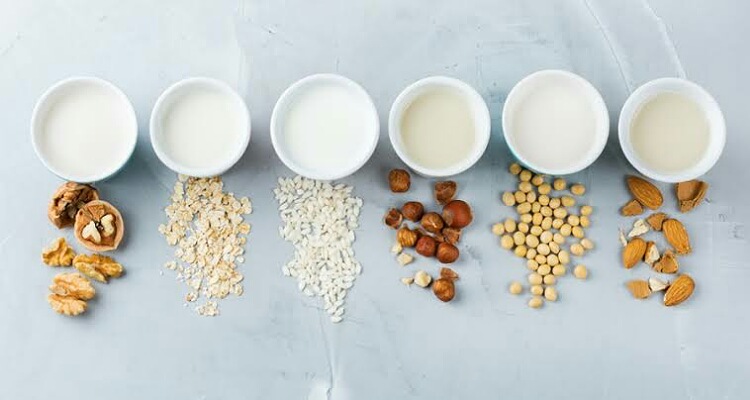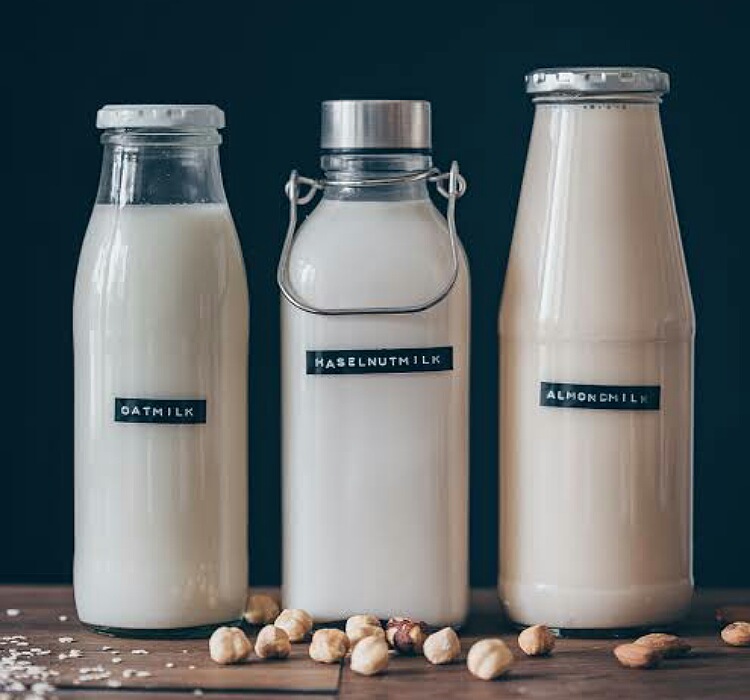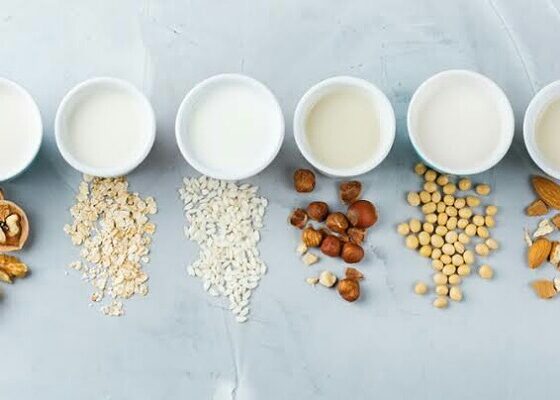Now there is a whole vast range of milks available in the market for consumption: dairy and plant based milks. The variety might confuse us. Which of these milks is the healthiest?
Milks and its types
Initially, whenever we uttered the world milk, it meant only the dairy milk from animals. But since the last few years, a large variety of plant sourced milks have flooded the markets. Initially, it was only soya milk but now there are oats milk, rice milk, almond milk, potato milk, etc. The choice is overwhelming. One does not know which to select.

Dairy milk has a lot of minerals and vitamins and is good for bones and teeth especially of developing children. But plant based milks are gaining popularity and catching up. They are sold with a tag of being healthier than dairy milk and also more sustainable.
Candace Pumper, dietitian from the Ohio State Wexner Medical Center’s Comprehensive Weight Management and Metabolic/Bariatric Surgery Program situated in Columbus says:
“Milk alternatives or substitutes are made by blending or extracting plant material in water,”
She adds:
“The plant materials then undergo homogenization and thermal treatment to enhance the physical stability and shelf-life of the final product.”
Dairy vs plant based milks
Plant based milks are nearly of same taste as that of the dairy milk. In fact, some people like the taste of the former milks more. But these milks do not contain all the nutrients that are present in cow’s milk. They are lacking in protein, calcium, vitamin D, and potassium. These are good for growing bones and teeth and muscles. Potassium also keeps blood pressure low.

However, manufacturers of plant sourced milk fortify them with minerals and vitamins to meet the requirements of users. Lise Gloede, dietitian from Arlington, Virginia says:
“All ‘milks’ are not created equal,”
“Nutritional differences are vast. Consider using a plant-based milk (like soy milk) if you have allergies (or a lactose intolerance), but keep in mind that your intake of protein and riboflavin will be less. These are important nutrients.”
Calcium in milks
Calcium is essential for bones, teeth, muscles and nerve function. Deficiency can lead to rickets, stunted growth and osteoporosis. Daily requirements depends on age and gender. An adult male requires 1000 mg daily and after 70 years, he needs 1200 mg per day. Women require 1000 mg per day. But above 50 years, the needs are 1200 mg per day. And calcium needs in children might be more.
Also, read Potato milk: the new milk substitute trend that has health and environmental benefits!

An 8-ounce cup of whole cow’s milk has 276 milligrams of calcium, while the skimmed cow’s milk contains 299 milligrams of it. But soy milk has only 61 mgs in 8 ounce and almond milk gives around the same amount. Hence these milks are fortified prior to sale. Candace states:
“all of the nutrients that are found in almond and oat milk are fortified in considerable quantities,”
“Almond and oat milk are generally nutritionally inferior to traditional dairy milk unless fortified. However, both alternative milk substitutes have their own unique benefits and drawbacks.”
